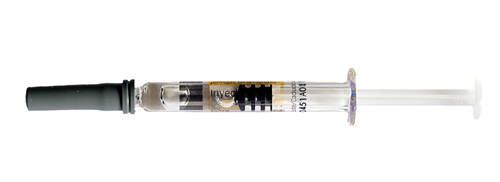Disney Experience
Well-Known Member
Which is one reason Pfizer is interested in seeing the results in Israel. Larger sample size than study, and in a real world situation (Technically the phase 3 trials are real world, and in Pfizer's case it is about 42,000 subjects in the trial)You are correct. When I went back to read the article and not just the quoted blurb... I actually was mostly in agreement with the article. It’s conclusion was very different than the purpose for which it was being cited.
What people need to remember is how limited these studies actually are. When talking about a “20,000 person study” — That sounds huge. Wow... 20,000 people and no deaths just from using the vaccine!!!
But no.. It’s approximately 10,000 people who got a placebo... 10,000 People got the vaccine. Both groups continued to socially distance and mask to the same degree (Since they didn’t know if they got vaccine or placebo).
Then after a couple of months, you compared how many people got infected, hospitalized, etc..
So maybe in the placebo group....200 out of the 10,000 were infected in the 3 months of the study. 20 were hospitalized out of those 200. And 2 out of those 20 died.
In the vaccinated group.... 20 got infected. And thus, it was 90% effective! 20 infections vs 200.
And from there, the same sizes get smaller and smaller. How confident in a conclusion can you be that 0 out of the 20 required hospitalization? Fact that 0 out of 20 didn’t require hospitalization doesn’t give me huge confidence that it would be 0 out of thousands.. 0 out of millions. If you would typically expect 5-10% to require hospitalization — You’d only expect 1-2 of those people to need hospitalization. So the drop from 1-2 shouldn’t inspire massive confidence that there is “100% effectiveness against hospitalization.”
And the fact that there were 0 deaths deals with an even smaller sample size. Ok, 0 out of 20 died.... And the normal IFR of about 0.5% suggests that in a random sample of 20 infections, you’d probably get 0 deaths.
Studies site confidence levels, and interim results are usually set to get an acceptable level of confidence. The big trials so far focused on effectiveness against symptomatic disease, so the level of confidence they shot for is based on that primary goal. There were secondary goals. If one reads the interim study results we will see that the effectiveness has a +/- to it, to compensate for the study size and duration to that point.
I too would not give absolute confidence that any vaccine is 100% effective against covid related death given the amount of available data to date. But I think it is good (Like my non-quant, subjective response of "good"
Pfizer originally was going to create their first interim report when they approached about 50 cases. They expected the end point to be when they got 150 cases . But by the time they submitted for EUA they exceeded the number (and I think was close to 200. They had decided not to report with only 50 cases even though that was their original protocol. Been a while since I read all of the documents, so my numbers may be off by a little bit)
A phase 3 study is never the final say. Nor were Phase 1 and 2. They each have a role in determining safety and efficacy, with an acceptable level of confidence. But nothing is 100% assured.
(Example: Sanofi's Dengue vaccine risks discovered post Phase 3 in the Philippians. https://www.sciencemag.org/news/201...leads-criminal-charges-researcher-philippines)
Or the H1N1 flu vaccine Pandemrix in Sweden:
Pandemrix-induced narcolepsy is associated with genes related to immunity and neuronal survival - PMC
The incidence of narcolepsy rose sharply after the swine influenza A (H1N1) vaccination campaign with Pandemrix. Narcolepsy is an immune-related disorder with excessive daytime sleepiness. The most frequent form is strongly associated with ...

Pandemrix - Adjuvanted H1N1 Influenza Vaccine
Pandemrix is an adjuvanted vaccine used in the prevention of the H1N1 (swine flu) virus infection and has been developed…
 www.clinicaltrialsarena.com
www.clinicaltrialsarena.com
The complementary roles of Phase 3 trials and post-licensure surveillance in the evaluation of new vaccines - PMC
Vaccines have led to significant reductions in morbidity and saved countless lives from many infectious diseases and are one of the most important public health successes of the modern era. Both vaccines' effectiveness and safety are keys for the ...


